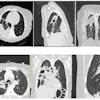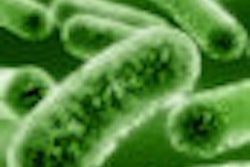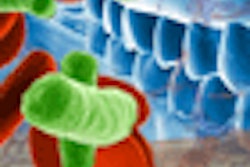Smoking causes the body to turn against its own helpful bacteria, leaving smokers more vulnerable to disease, according to a study published in Infection and Immunity (November 2011, Vol. 79:11, pp. 4730-4738).
Researchers from Ohio State University (OSU) found that the mouth of a smoker is a much more chaotic, diverse ecosystem, and is much more susceptible to invasion by harmful bacteria than that of a nonsmoker.
The study results suggest that dentists may have to offer more aggressive treatment for smokers and would have good reason to suggest quitting smoking, Purnima Kumar, BDS, PhD, an assistant professor of periodontology at OSU, stated in a press release.
She and her colleagues are involved in a multistudy investigation of the role the body's microbial communities play in preventing oral disease. They looked at how these bacterial ecosystems regrow after being wiped away. For 15 healthy nonsmokers and 15 healthy smokers, the researchers took samples of oral biofilms one, two, four, and seven days after professional cleaning.
The researchers were looking for two things when they swabbed subjects' gums. First, they wanted to see which bacteria were present by analyzing DNA signatures found in dental plaque. They also monitored whether the subjects' bodies were treating the bacteria as a threat. If so, the swab would show higher levels of cytokines, compounds the body produces to fight infection.
The team found that for nonsmokers, bacterial communities regain a similar balance of species to the communities that were scraped away during cleaning. Disease-associated bacteria are largely absent, and low levels of cytokines show that the body is not treating the helpful biofilms as a threat.
Smokers' mouths, however, started getting colonized by pathogens within 24 hours. They also had higher levels of cytokines and evidence of gingivitis. The types of cytokines in smokers' gum swabs showed the researchers that smokers' bodies were treating even healthy bacteria as threatening.
Kumar and her team suspect that smoking is confusing the normal communication that goes on between healthy bacterial communities and their human hosts.



















